Grow yourself through communities
I recently spoke at Devoxx UK about how you can grow, both personally and professionally, through being involved in communities. It was in the form of an Ignite talk which was great fun but I realised that there were a few slides that felt a little lightweight compared to others.
Writing the talk up as a blog post will hopefully help me to fill out the lighter parts, as well as maybe make it suitable for a longer length talk at some point in the future.
It may even prove useful for those out there who weren’t able to see the talk or prefer the written form.

There are a few definitions of what a community is but for the purposes of this talk the one that resonates with me most is this…
the condition of sharing or having certain attitudes and interests in common.
The word community has evolved from the word common and this is key.
The idea of a community is that the people involved in it have something in common, whether that’s beliefs, ideas, attitudes or interests.

Communities are important to us as people as they give us a sense of belonging.
Finding other people with things in common to us is part of human nature.
Communities help us to meet and connect with others who share our interests and provide a safe space for us to grow.
There are many different kinds of communities exist so here are a few that relate most closely to my experiences working in tech.

For me, the most important community is the one at home.
My family are the foundations of what make it possible for me to be a success in both my personal life and at work. They provide support and a basic sense of security that give me the space to grow and succeed.
When you do fail, which will happen from time to time, I can always rely on them to pick me up and give me the motivation to go again.

In a professional context, the first community that comes to mind is your team.
These are the people who you work with day-to-day and share the same business priorities with. You’ll often have aligned ideas and principles about how you believe work should be done.
You will also disagree on things and that’s ok.
You’ll collaborate with your team in various ways through things like coaching and pairing, or even socialising outside of work.
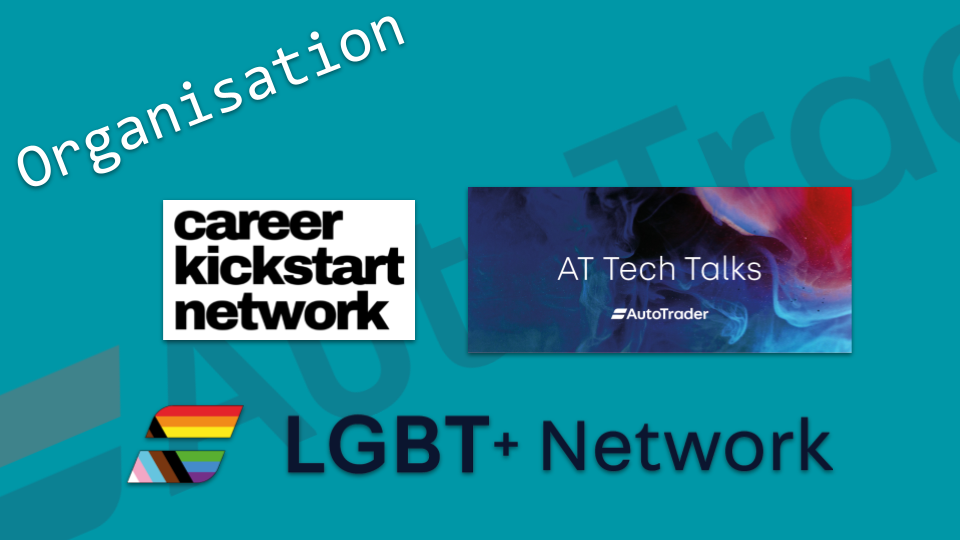
If you look wider than your immediate team within your organisation there are usually multiple communities that are active at any one time.
Some examples are guilds focused on things like sustainability and LGBT+.
Other examples are groups focused on personal development & knowledge sharing such as an early careers network or a tech talk community.
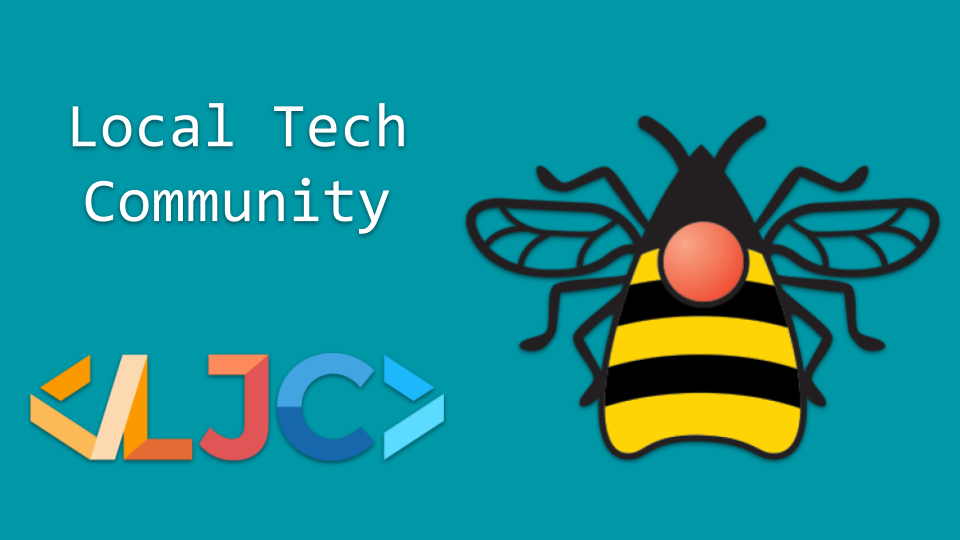
Outside of the place where you work your next step may be to look at the local tech community.
These are often focused on a specific technology, some key examples for me being Java User Groups (JUGs) such as the Manchester Java Community and the London Java Community.
Some other key communities that I’ve found hugely beneficial are those that focus around how we deliver software such as XP Manchester.
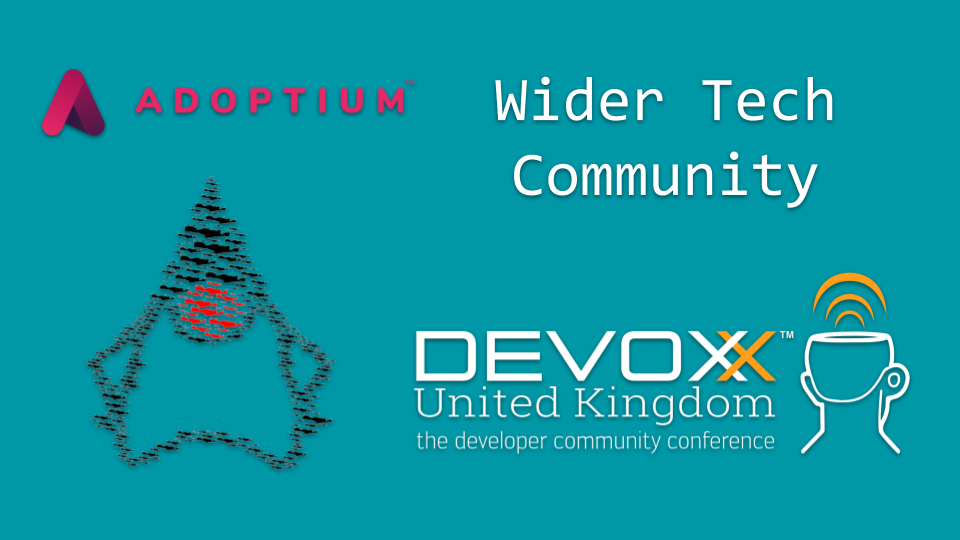
Taking this a step wider we can start to look at the wider tech community.
This could be based around an open source project. An example I’ve become involved in over the last few years is the Adoptium project that provides Java binaries to millions of developers and organisations worldwide.
Then there are conferences such as Devoxx UK who provide an excellent community focused Java conference.
Finally, if you’ve never experienced one, I highly recommend seeking out and attending an unconference. The best example I’ve found is JCrete® where a selection of the most respected experts in the Java field gather once a year to discuss Java and enjoy the Cretan climate and culture.
Some other unconferences of note, which are possibly more accessible to those based in the UK, are JAlba in Edinburgh and our very own JManc (that will hopefully making a reappearance in 2022).

Where to start though?
For me, just turning up and getting a feel for the community is the best starting place.
First and foremost you’ll get the most out of any community you decide to be involved with if you feel welcome and included.

This will help you grow.
If the community is the right fit for you, you’ll start to grow a sense of belonging.
If not, you’ll have grown your understanding of what it is your are looking for.
You’ll also grow your experiences, some of which may just be related to stepping outside of your comfort zone.
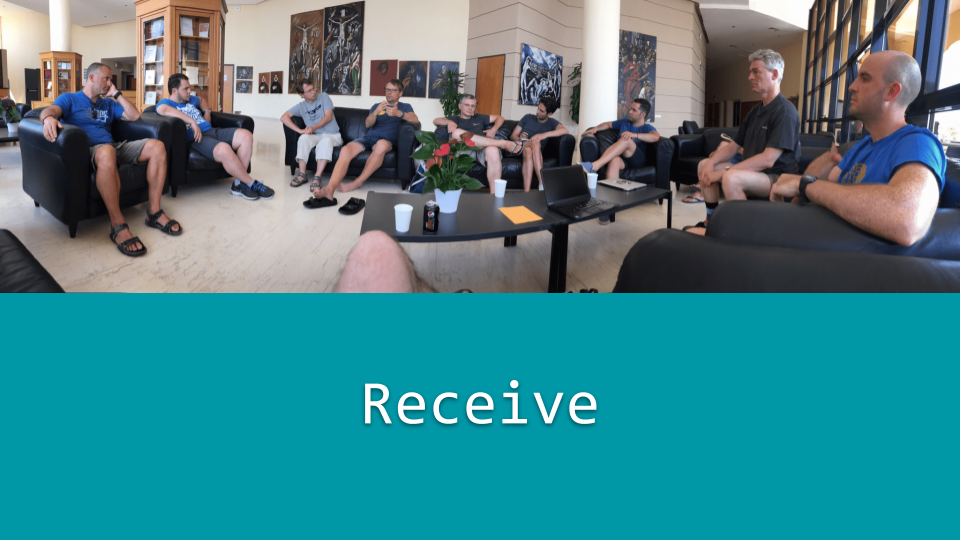
When you know the community feels right you can start to focus your attention on actively seeking out the content and interactions that are most relevant to you.
You’ll start to be more selective of attending the specific events that interest you and become more aware of people in the community that are of interest.

This will help you to grow some more.
Adopting a more intentional approach to being involved in the community will help you to receive the information you find most relevant and make valuable connections.

As you become more comfortable within a community you’ll gain the confidence to give back.
Giving back to a community comes in various forms.
You may simply informally share your knowledge or experience with others in the community. It may be that you decide to give a talk. You may offer your ideas and/or time to help the organisers with the event.
In my opinion all good communities should be open to this kind of involvement and encourage it. It’s the responsibility of organisers to remove barriers and try to make community involvement accessible to all.

And you will grow some more.
You’ll gain confidence in yourself as well as the respect of others in the community.
You’ll also gain a sense of achievement when you see your contributions helping the community itself to grow.
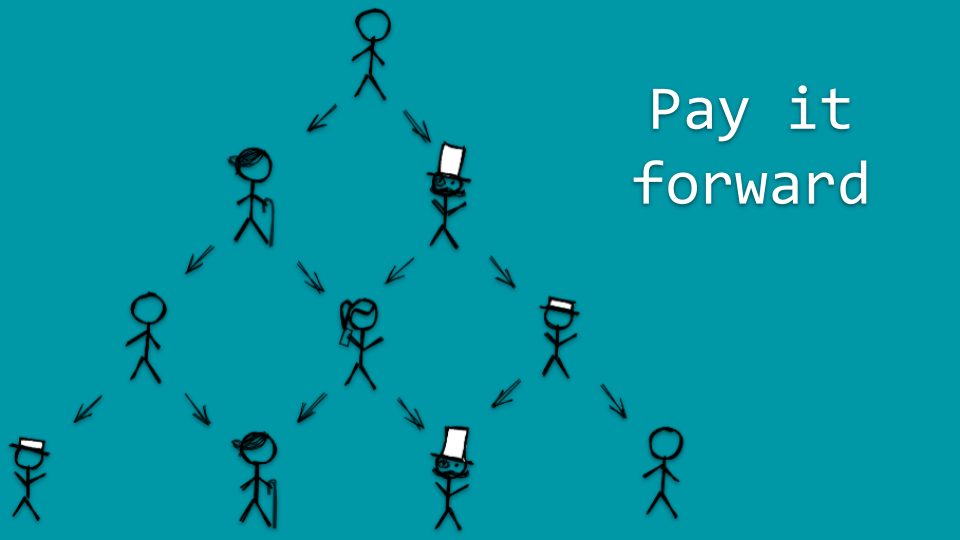
Finally, the most important one for me, you should pay it forward.
Hopefully when you joined the community you had others who welcomed you and gave their time to provide a positive experience.
Now it’s your turn!
Engage with newcomers to the community in a way that makes them feel welcome and that they belong.
Help existing members of the community to follow in your footsteps, whether that’s through engaging conversations or creating opportunities for them to help out or give a talk themselves.

I’ve found that nice side effect of helping others to grow is that you will also.
You’ll also gain the trust and respect of others in the community. This will generally lead to new opportunities both within and outside of the community you are involved with.
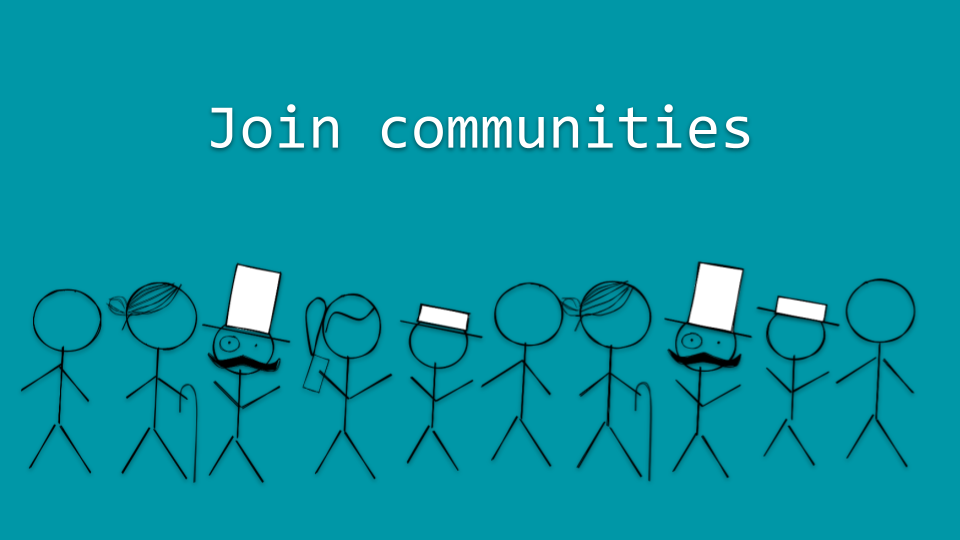
So in summary, my recommendation is to get out there and join communities.
Take your time to find communities that align with your interests and importantly are inclusive, have good values and make you feel welcome.
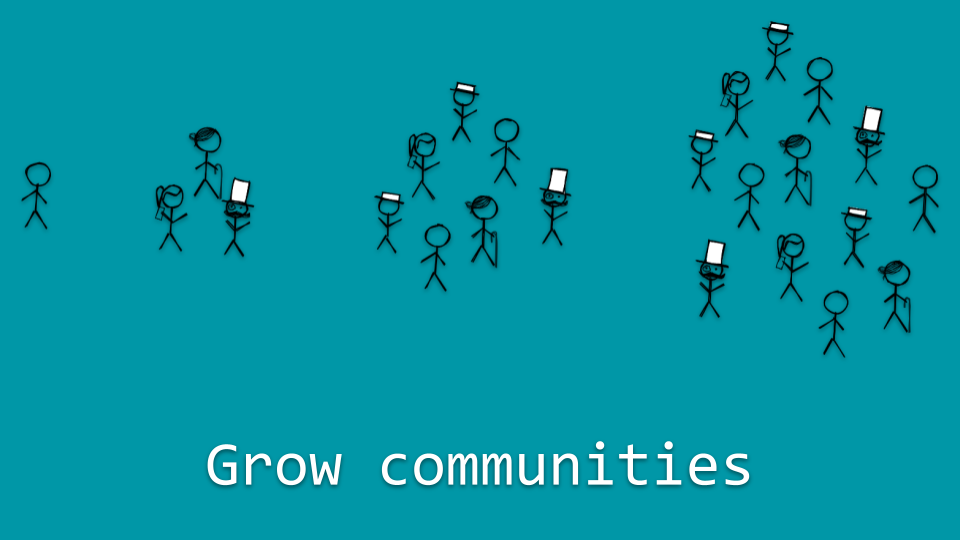
Look for opportunities to grow the communities you are a part of, whether that’s through spreading the word, volunteering your time or even doing a talk of some kind.
Most communities welcome and encourage involvement in various ways, sometimes you just need to ask the question “How can I help?” to get started.
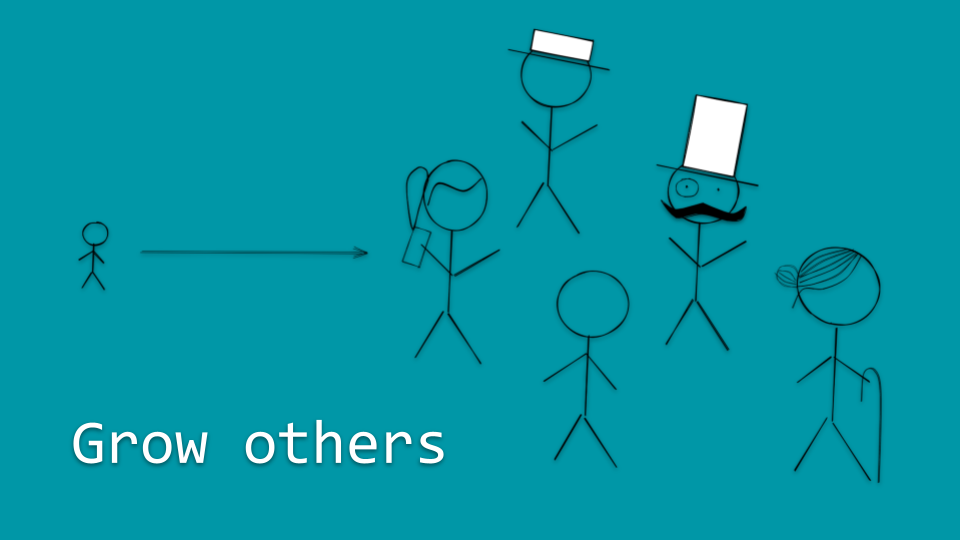
Just being involved in a community as a consumer and maybe a producer will give you lots of opportunity for growth.
I truly believe though that if you put focus on growing others it’s at this point you will grow yourself to another level.

So to summarise, through being involed with communities of different kinds and at different levels of engagement you will grow yourself both personally and professionally in a variety of ways.